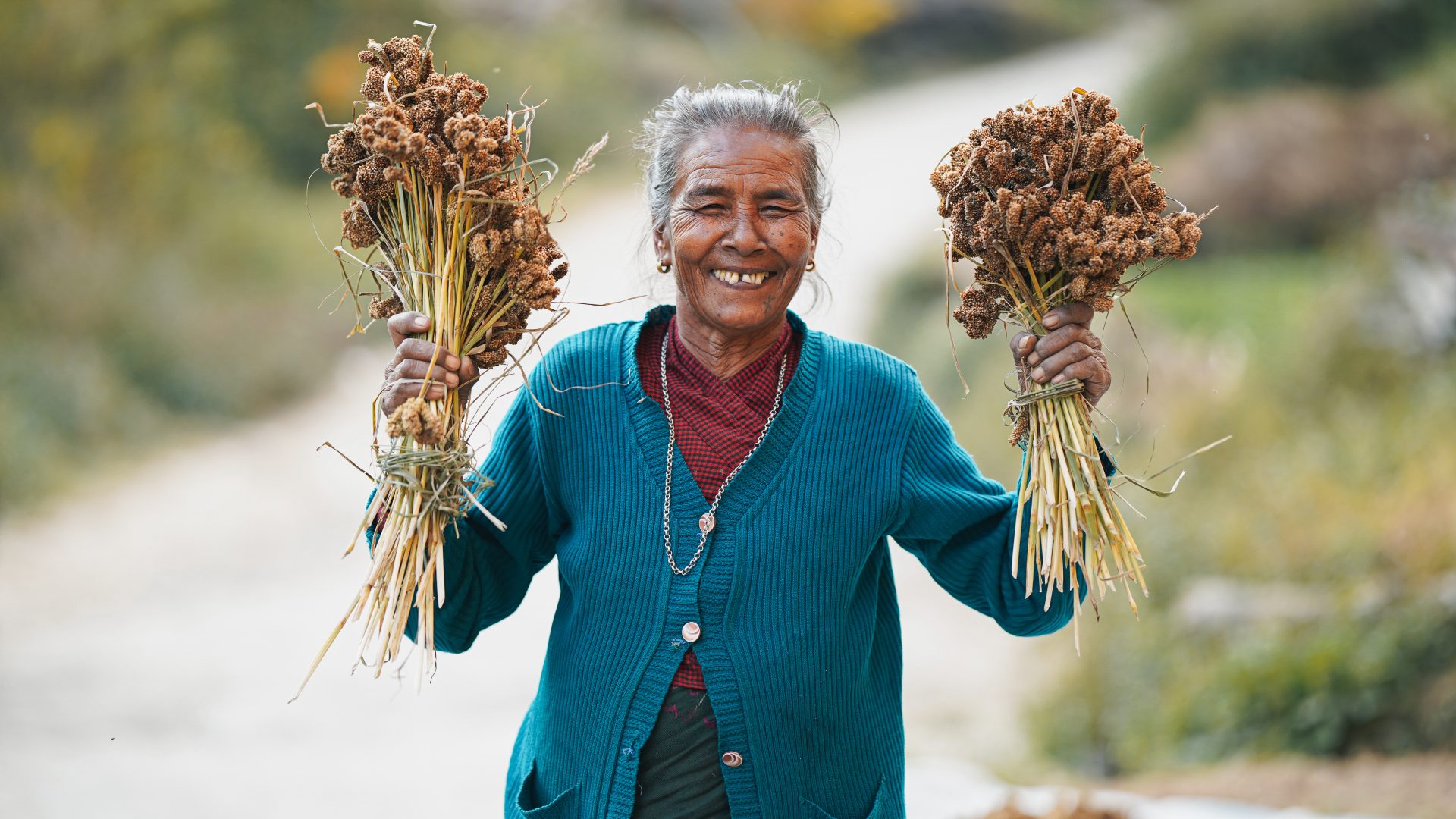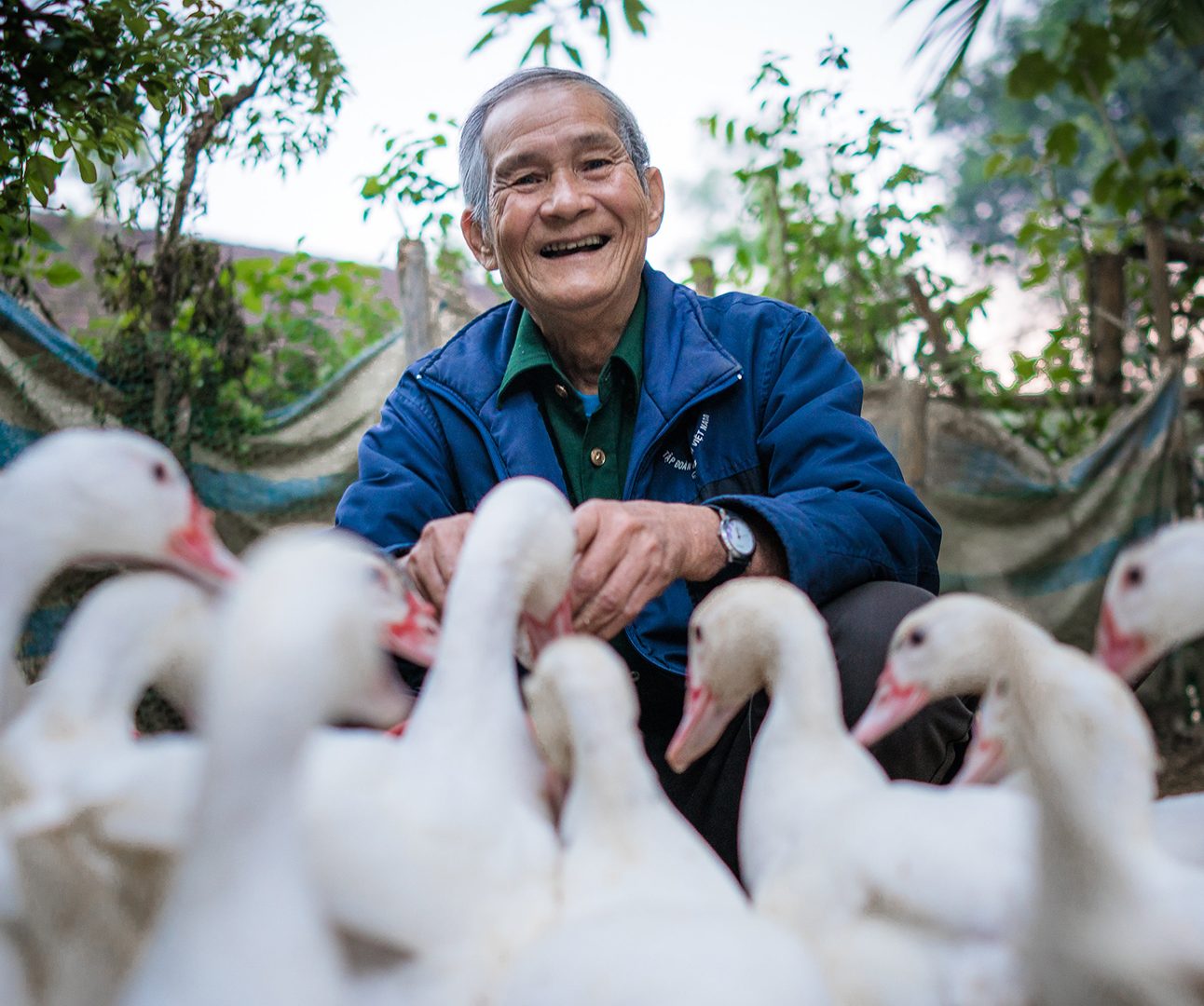What are Older People’s Associations?
OPAs are community-led groups formed by older people and often include younger generations who come together to support one another. These groups are shaped by their members, who decide what activities to focus on, from earning a living to staying healthy and connected.
At the heart of OPAs is the idea of “nothing for us without us.” This means older people take the lead in making decisions that affect their lives and communities.
OPAs make a big difference
HelpAge International has worked with OPAs for over 30 years, supporting thousands of these groups across Asia and Africa. OPAs have proven to improve income, health, social support, and access to rights and services for older people.
In Asia alone, nearly 727,000 OPAs exist, serving close to 100 million members. Among these, 80% carry out income-generating activities (IGAs), which help older people earn money and stay active.
How can we strengthen OPAs?
To support older people in earning a living and building better lives, the report recommends the following:
- Invest in strong, sustainable OPAs – Multifunctional OPAs that are built to last can play a key role in helping older people earn income and support one another. These groups need resources and long-term support to keep going.
- Start with a shared vision – When forming an OPA, it’s important to involve members in setting the group’s mission and rules. These should include how leaders are chosen, how long they serve, and how decisions are made – all through inclusive, participatory methods.
- Check in regularly – Programme teams should help OPAs assess how well they’re doing using easy-to-use tools. This helps guide important decisions like when to give out seed funding, update plans, elect new leaders, or improve income-earning strategies.
- Support older people’s voices – Using the HelpAge “voice model,” OPAs can help older people speak up for their rights, both within their group and in the wider community.
- Make income a priority – OPAs that focus on income-generating activities can help their members become more financially secure. One effective method is a revolving fund, which is managed by the OPA itself, encouraging ownership and long-term success.
- Go digital – Training OPAs in digital tools can help them use mobile money services (like Mpesa in Kenya) to safely manage group funds and reduce the need for cash transactions.
- Support work that works – Older people often want to keep working – and doing so can bring health and emotional benefits. When the work is safe, fair, and voluntary, it can offer a better income than pensions alone. OPAs should work with local leaders to create fair job opportunities for older people who want them.
- Learn from experience – We need more research into how OPAs work in different places, what challenges they face, and what makes them successful. This helps everyone understand how best to support older people and their communities.
OPAs are more than just community groups, they are lifelines for millions of older people. When older people have the opportunity to organise, earn, and lead, the whole community benefits.
We must recognise the power of older people and invest in the structures that help them thrive.
Further reading:
Read about Intergenerational Self-Help Clubs (ISHCs) in Vietnam – a testament to resilience and community-driven solutions amidst the country’s rapid ageing.
Explore how we improve income security for older people around the world.


